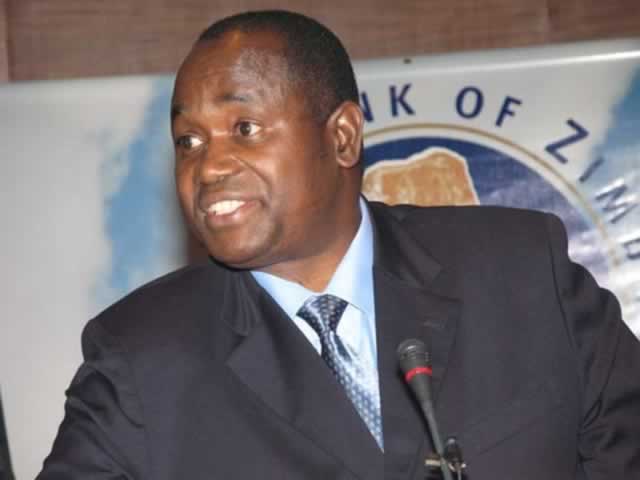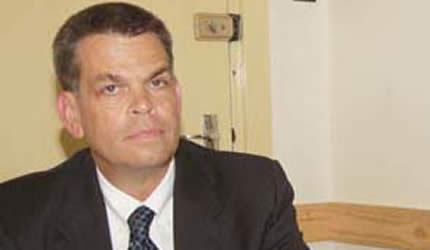![ANDY HODGES2]() Andy Hodges in KUALAR LUMPUR, Malaysia
Andy Hodges in KUALAR LUMPUR, Malaysia
CAPS United are a football club crying out for a new lease of life, bogged down by a business model that is clearly not working and in dire need of a leadership that can take decisive action now to drive this team forward.
The club is, at present, stagnant.
For a club like CAPS United, who won two league championships on the trot, spending nine years without winning the grand prize is unacceptable and rightly, the supporters are frustrated and asking questions. It’s time for bold decisions to be made, long-term plans to be put in place and carried out and wider engagement with supporters done.
Clearly, there should be no room for rioting and violence.
We all know that this will hurt the very club we all love so much and I am a firm believer that any fan caught carrying out such acts should be banned from attending any football matches, of any type countrywide, for an extended period of time.
Supporters require answers to their questions and good communication between the club and supporters will go a long way to achieve this.
Our fans are frustrated because there appears to be no clear Master Plan at CAPS United and, if there is, they do not know what it is and cannot see it.
It is important, firstly, to note that any good organisation is only as good as the people running it and the “family” in it.
As CAPS United chairman, I was fortunate to have as an executive and also advisors who were some of the best football minds in Zimbabwe and successful businessmen in their own rights — Wellington Chando, Ziyambi Ziyambi, Willard Mayengavana, Wellington Dangarembizi, David Nyamweda and Mordecai Sachikonye.
And, of course, we had the helping hand of the CAPS United Supporters leadership and the club’s fans countrywide who were always there to give us advise.
That a true supporter is one who stays with their team through good and bad times and has faith and belief that things will get better.
A true supporter NEVER riots or resorts to violence. A good club executive puts the love of the club first and does all he/she can to ensure that things are in place to do the one thing we all want — win football matches and trophies
With the two together, True Supporters and Good Executives, nothing can hold CAPS United back, so let’s get on with it.
Player Welfare
Players need to be paid on time and when their funds are due, they should be given all the necessary support be it in equipment, gym, lunch, acceptable camping facilities, expert medical assistance, family support etc.
A club like CAPS United must ensure that the only thing that its players worry about is playing football and nothing else.
It is true to say a group of unhappy workers will never write success stories.
The coach and players, however, must step up and be counted.
They must play for the love of the Club and also the millions of our supporters in Zimbabwe who passionately support CAPS United.
They owe it to these supporters to win the games, no matter how hard the conditions they might be operating under.
Once they put on that green jersey, they should perform, anything else is unacceptable and players who are like mercenaries players have no place in a Club like CAPS United and no matter how good they are should be shown the exit door.
Disposal Of Shares
It is important to first state that Twine Phiri has only the interest of CAPS United at heart. I believe that the criticism against him, of late, is not constructive, unnecessary and over the top.
We are all not infallible and each of us must accept constructive criticism and I am sure Twine will do the same, but when the criticism is not constructive what should you do? Supporters do not see most of the work Twine, behind the scenes, does and has done for over 10 years.
He plays a large part in CAPS United and it is his character not to blow his horn but quietly go about his business.
Has he made some mistakes, of course, he has. Has he been successful, of course, he has. He is just like all of us who do exactly the same every day, but you should never doubt his love or passion for CAPS United and his belief that what he does is for the good of the team.
The issue of share disposal is not about the man it is about the club. Twine lives, eats and breathes CAPS United and football and to force out or lose such a talent is frankly ridiculous and in-fact would hurt our game.
The question is if shares are sold, will they be sold to an individual or company that will be able to bear the long-term financial costs of the club and also implement long-term plans, that will require large financing — e.g. fixed costs like stadium/club house etc?
I believe that for the good of the club, and also to enable it to grow, this is an option that must be considered as long as the right partner is found.
How We Were Successful
Our executive came up with a five-year plan. This plan covered the following areas — Professionalism, Supporters, Revenue.
We recommended that we turn CAPS United into a professional institution, setting up our own office with the relevant qualified staff employed.
These would cover administrative issues, public relations, marketing and supporters and this was done in 2002/ 2003 and had tremendous benefits. We recommended that we set up a Supporters Club.
This allowed supporters, countrywide, to access regalia, season tickets, Match Day programmes, attend exclusive events etc.
The plan also called for supporters to be involved in the Supporters Club at management level. It was clear that the model of mostly existing on gate taking to run the club would be unsustainable. We had to generate additional revenue from other sources and sponsorship.
Fixed costs included wages, bonuses, venue hire, camping, kit, travel, hotel fees etc.
We understood we faced a number of challenges, some of these included the high cost of stadium rental and Match Day expenses, the revenue leakages at the turnstiles on Match Day and replicas being sold outside the club’s jurisdiction.
We understood we had to spend money to make money in the long-term.
We recommended we build our own training camp with full facilities, a club house, dormitory, state-of-the-art gym and medical rooms, sauna, two full-sized pitches, state-of-the-art training equipment, etc.
We recommended we seek land to build our own 10 to 15 000-seat stadium or buy and refurbish an existing venue. The benefits of our own stadium would be immense.
We would cut down fixed costs, introduce hospitality suites, hire out the venue for other events etc. The benefits to the club would be unbelievable.
We recommended we import and install, from South Africa, state-of-the-art computerised ticketing machines at all turnstiles at our match venue. This would allow us to ensure or, at least, cut down leakages.
We recommended selling season tickets to our supporters. This would allow us to receive revenue up front. We also recommended appointing a vendor countrywide to sell tickets during the week before Match Day and even utilising the internet to sell tickets well in advance of games.
With the introduction of the Supporters Club we would also realise income from membership fees.
Sponsors/players
We recommended getting a full-time sponsor. This could either be achieved through selling our commercial rights, selling of part ownership of the club, branding, etc.
We understood that sponsorship, however, would only come to an institution that was professionally run, had a clear vision and plan and had individuals that could be trusted by the sponsors and I am glad to say we did.
We understood that we had to ensure that we continuously had “home” grown players coming through the ranks. With this in mind we funded a comprehensive junior development programme from Under-10s upwards.
We further recommended twinning with schools all over Zimbabwe to identify talent and also give school players access into joining a professional football club and making football a career.
We further understood we had to also be continuously selling stars into bigger markets, Europe and South Africa and if we got our junior programme right we would have an endless talent of players who would eventually become stars outside the country and also raise large revenue for the club.
The executive also implemented a player-contract policy at CAPS by ensuring all players at all levels had valid long-term contracts. We sought stability, growth, a vibrant youth policy, all things required for a successful club to survive and grow on the field of play.
- Andy Hodges is a former CAPS United chairman who guided the Green machine to the league title in 2004, losing only one game and raking a record 79 points.

















